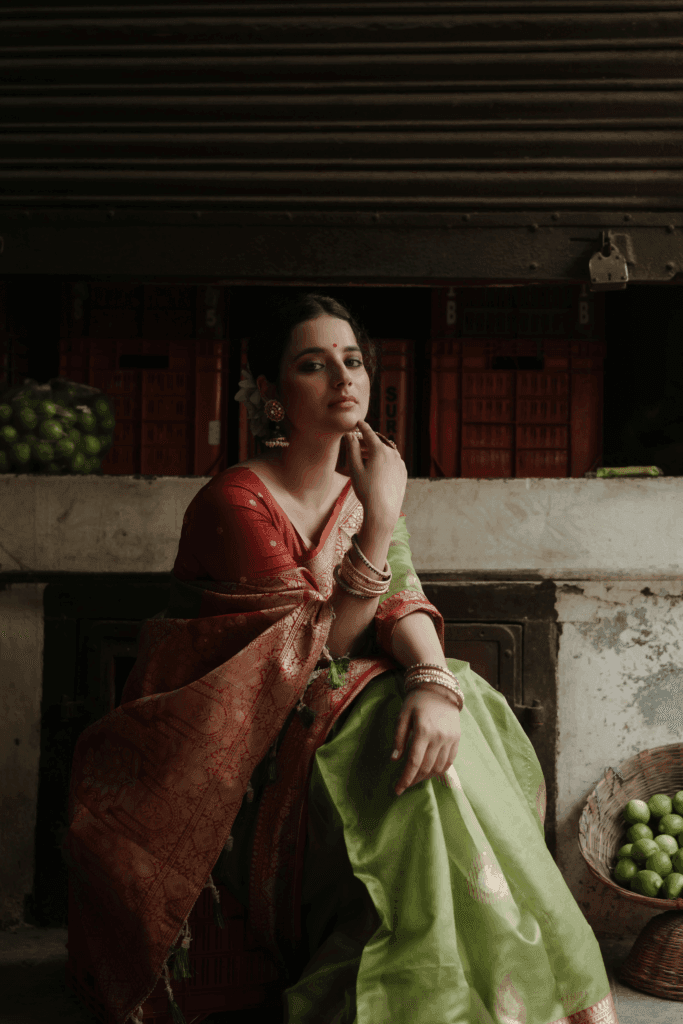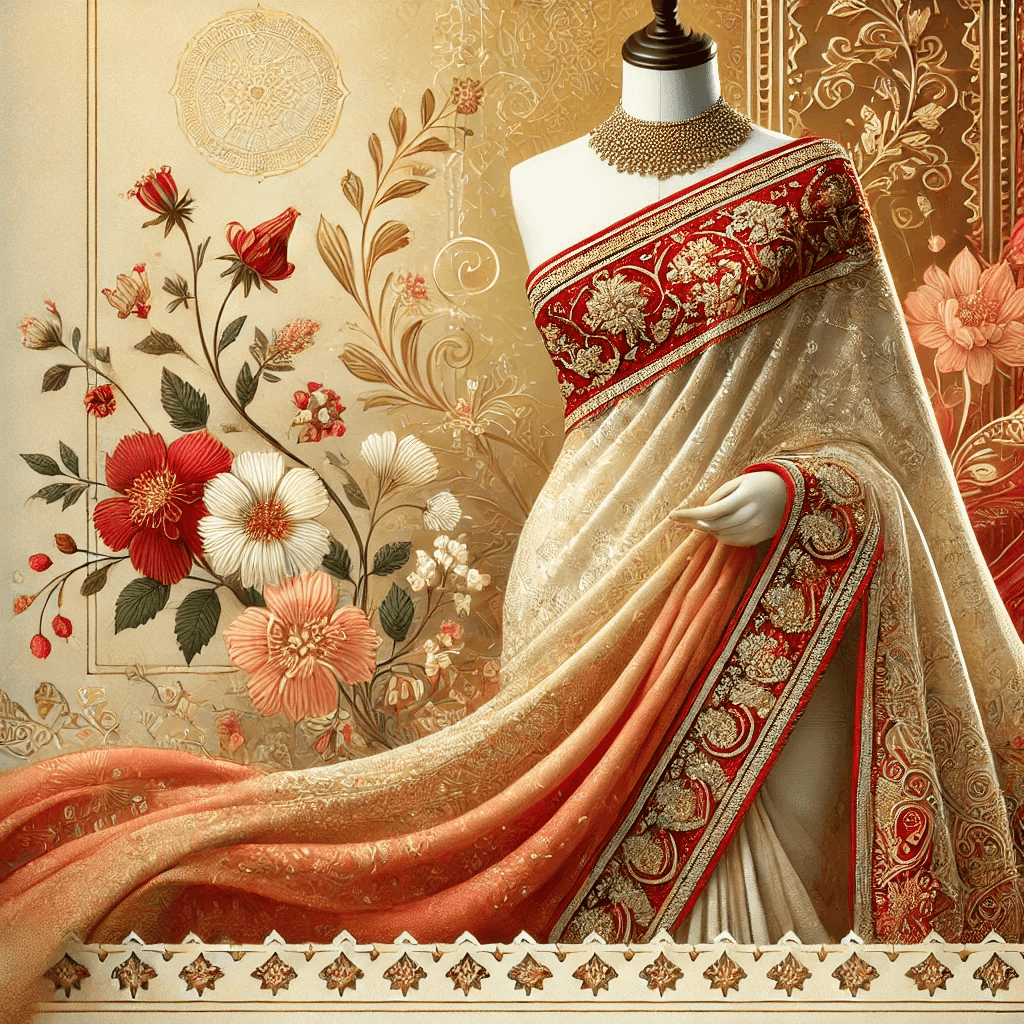- The History and Origin of Sungudi Cotton Saree
- How Is a Sungudi Cotton Saree Made?
- Features of Sungudi Saree
- Why Choose Sungudi Cotton Saree?
- How to Style a Sungudi Cotton Saree
- Care and Maintenance
- Where to Buy Sungudi Cotton Saree
- Challenges Faced by Sungudi Cotton Saree Artisans
- Government Efforts and GI Tag
- A love At First Sight And The Wearer's Delight
India, the land of sarees is renowned for its saree culture. Each region blessed with a special weave of its own. Among hundreds of small regions popular for their distinct handlooms and weaves, Sungudi is a remarkable one. The saree story of this region is unique and pretty interesting, just as the stunning weaves it creates. Known for its tiny dots and vivid colours, the story of Sungudi cotton saree dates back hundreds of years.
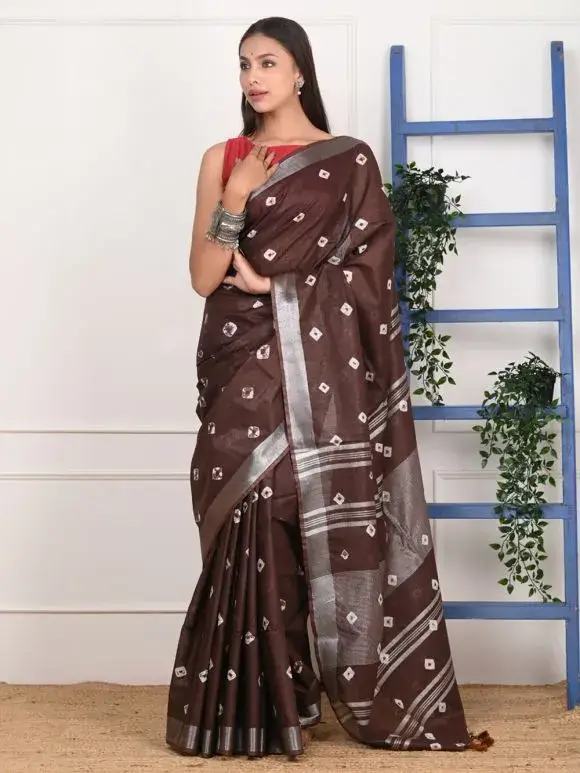
The beauty of this saree is that it is very simple, elegant and comfortable. Quite light and breathable it is perfect for hot weather. Let’s dive into the world of Sungudi sarees and explore their origin, making, features, and styling tips.
The History and Origin of Sungudi Cotton Saree
The Sungudi saree hails from the city of Madurai in Tamil Nadu. It has a rich history. Saurashtrian community from Gujarat brought this craft around the 17th century. They settled in Madurai and introduced tie-dye techniques to the local textile industry.

This new technique of tie and dye was quite popular and slowly and gradually it blended with the Tamil culture. Eventually, a new saree style came ito being, the Sungudi saree. The name “Sungudi” actually comes from the word “sunnam,” which means lime. Lime is used in the dyeing process. Since these sarees are hand-dyed, each saree is unique and a true work of art.
How Is a Sungudi Cotton Saree Made?
Beautiful as it is, the process of creating a Sungudi saree is tiresome and requires great patience. Each saree is hand-knotted and then dyed. Which is why each saree crafting takes a lot of time. Here’s a step-by-step breakdown:
1. Preparing the Cotton
In a Sungudi saree pure cotton is used. The fabric is first washed to remove starch. This makes the fabric soft and prepares it for dyeing.
2. Tying the Dots
Thousands of tiny knots are tied across the fabric using threads. This is the most important step. Each knot will resist the dye, leaving a white dot on the fabric.

3. Dyeing the Fabric
Once tied, the fabric is dipped in natural or chemical dyes. Traditionally, vegetable dyes were used. After dyeing, the threads are removed to reveal the dotted patterns.
4. Adding the Borders
The border and pallu are often woven separately. They are rich in zari or contrasting color threads. In order to give the saree a festive look, gold threads may be added.
Despite the hard work, artisans still prefer hand techniques over machines. Because of this, the craft has kept its originality.
Features of Sungudi Saree
The Sungudi cotton saree has many unique features:
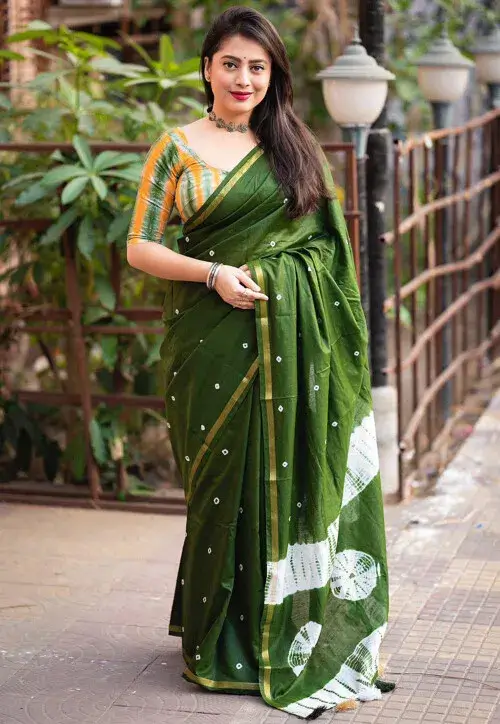
- Lightweight: It feels airy and soft, ideal for daily wear.
- Breathable Cotton: Perfect for Indian summers.
- Dotted Patterns: Tiny white dots spread all over the saree.
- Bold Borders: Often with contrast colors and zari designs.
- Handmade Beauty: Artisans craft each piece with patience and love.
Also, these sarees are usually available in bright hues like maroon, green, mustard, and pink. The contrast between the body and border is quite eye-catching.
Why Choose Sungudi Cotton Saree?
There are many reasons to choose a Sungudi cotton saree over others:
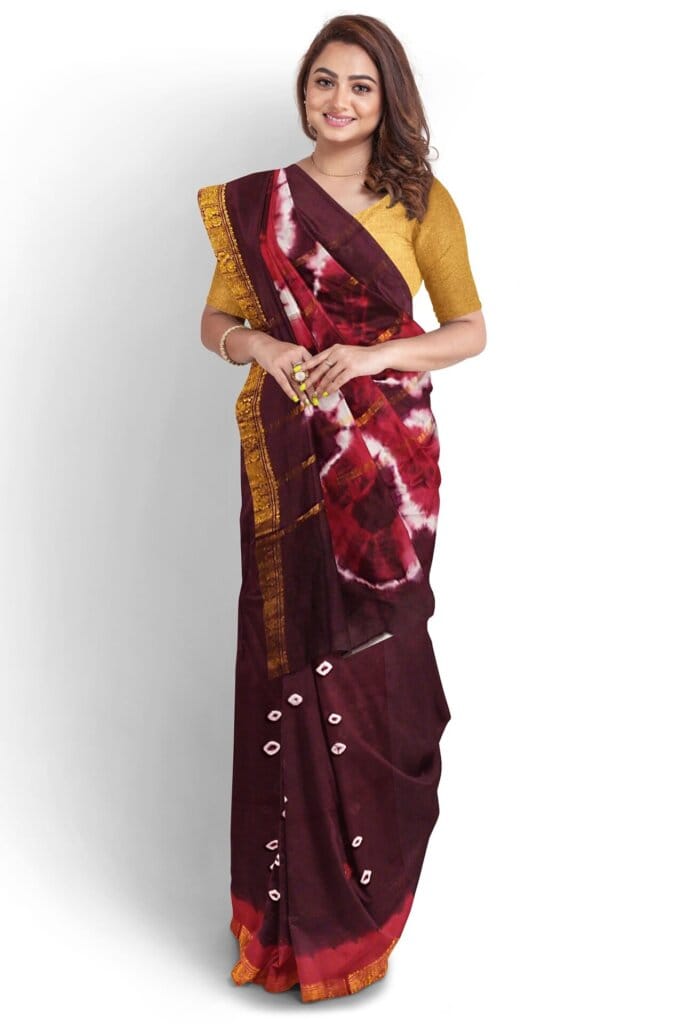
- Affordable and easy to maintain.
- It suits women of all age groups.
- You can style this for both casual and festive events.
- It reflects cultural roots and supports artisans.
- In contrast to synthetic sarees, this one feels natural and skin-friendly.
Because of its simplicity, the Sungudi cotton can be both elegant and traditional. It is a saree that adapts to the way you style it.
How to Style a Sungudi Cotton Saree
Styling the Sungudi cotton saree can be fun. Since it has a simple body, accessories can help enhance the look.
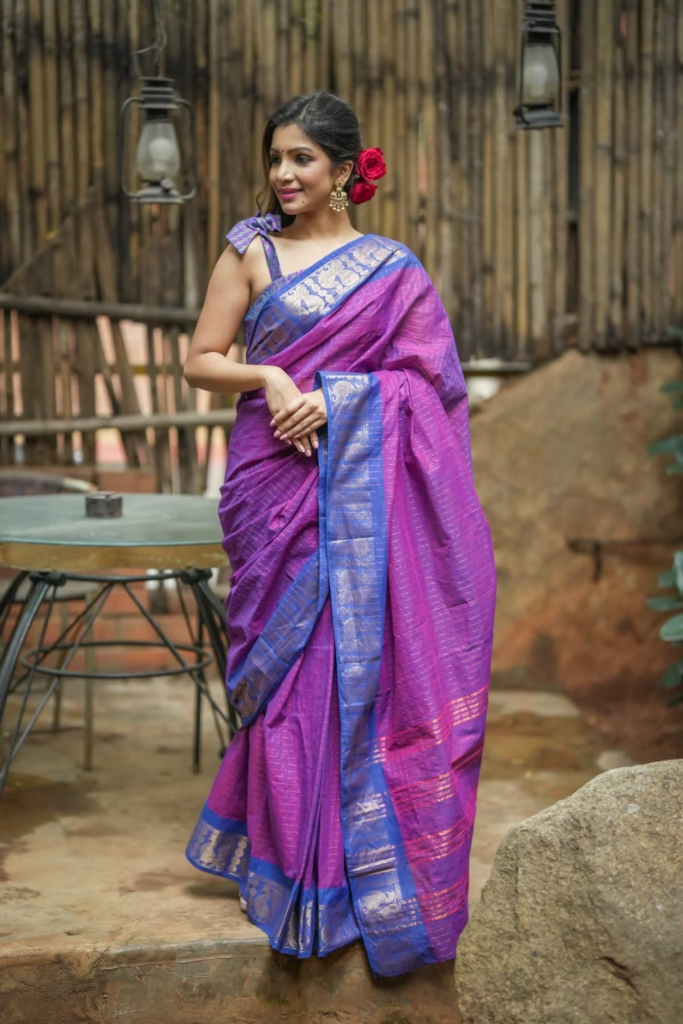
Casual Look:
- Pair with a sleeveless or printed cotton blouse.
- Add silver or terracotta jewelry.
- Tie your hair in a bun with fresh flowers.
Office Look:
- Go for a neat, high-collar blouse.
- Minimal jewelry and a wristwatch will do.
- Add a simple bindi to complete the look.
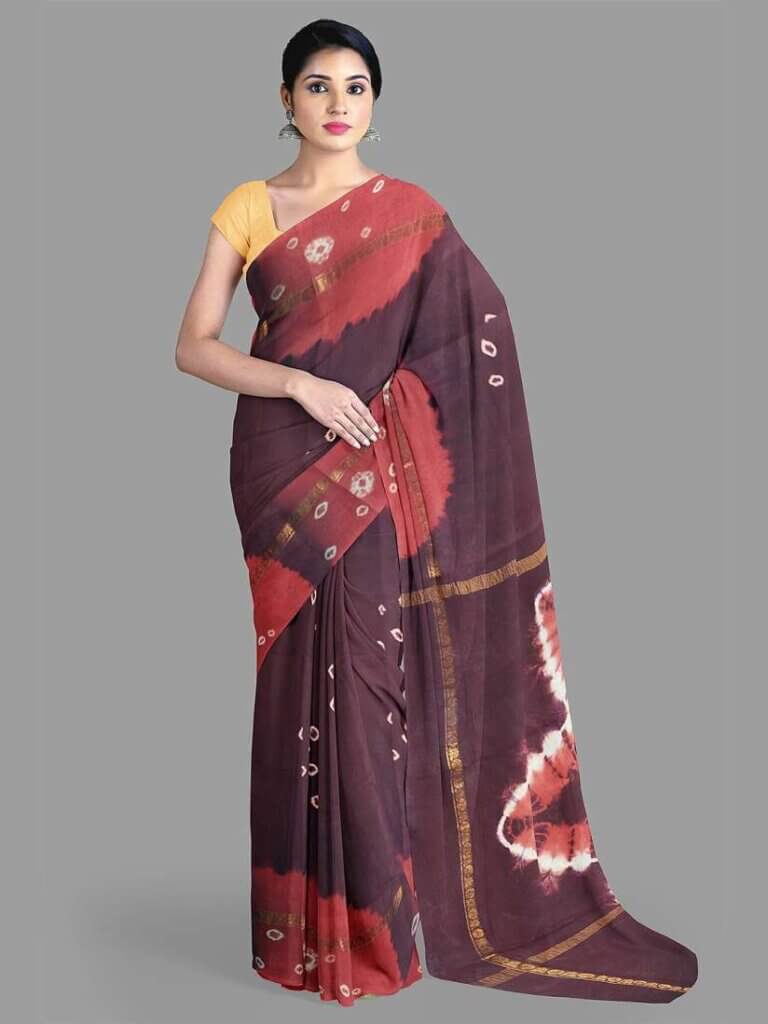
Festive Look:
- Choose a blouse with zari or embroidery.
- Add heavy jhumkas and bangles.
- Drape the pallu in a traditional way.
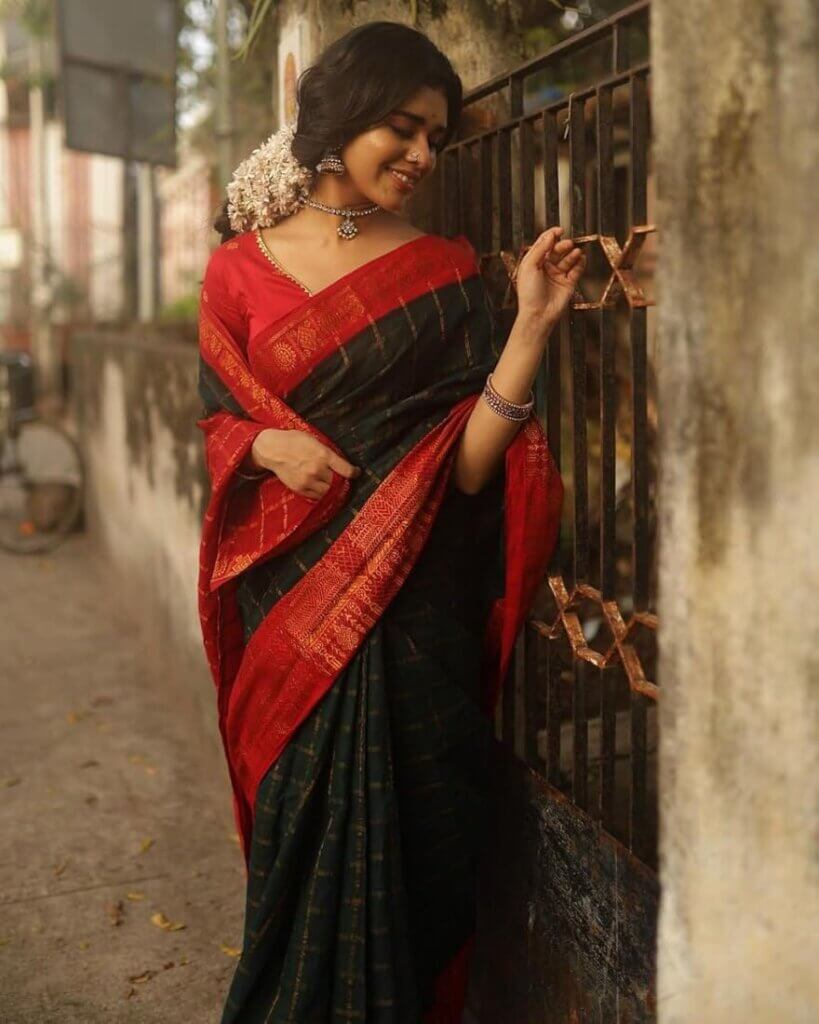
Because of its versatility, this saree fits many roles. Whether it’s a pooja, wedding, or regular day, you can always count on a Sungudi cotton saree.
Care and Maintenance
Although the Sungudi cotton is strong, a little care goes a long way.
- Always wash it in cold water.
- Use mild detergent.
- Avoid machine wash to protect the dye.
- Dry in shade to prevent color fading.
- Iron when slightly damp for best results.
In order to make it last longer, store it wrapped in muslin or cotton cloth.
Where to Buy Sungudi Cotton Saree
You can find Sungudi cotton sarees in local markets across Tamil Nadu. Madurai is the main center. However, you can also find them online.
Many handloom websites offer authentic Sungudi cotton options. Look for government-approved or artisan-supported platforms. These ensure quality and also help weavers directly.
Challenges Faced by Sungudi Cotton Saree Artisans
Despite its beauty, the Sungudi cotton saree industry is facing some issues.

- Young people are not joining the craft.
- Machine-printed imitations have flooded the market.
- Low income and lack of exposure trouble artisans.
- Demand for synthetic and designer sarees is rising.
In order to preserve this art, there is a need for more awareness. Buying authentic Sungudi cotton can help support this ancient tradition.
Government Efforts and GI Tag
The Sungudi cotton saree has received a Geographical Indication (GI) tag. Which means that only the sarees which are from Sungudi receive the tag and the special name. It helps protect the identity of the craft.
Also, the government offers training and financial support to weavers.
A love At First Sight And The Wearer’s Delight
The Sungudi cotton saree is a living piece of art and heritage. Vibrant and colourful, these sarees are full of life. The colours, dots and texture narrate the stories of India’s textile heritage. In an era of fast fashion, Sungudi cotton sarees are a reminder of slow and meaningful craftsmanship. A blend of comfort, style, and heritage the Sungudi cotton saree is an evergreen classic.
So, hey diva! age no bar, style this stunning work of art without second thoughts and let this masterpiece do the talking.

